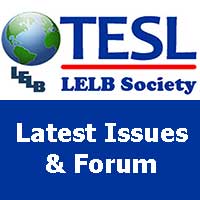Recast
Recast is another form of feedback, though they are less direct and more subtle than other forms of feedback. A recast is a reformulation of an incorrect utterance that maintains the original meaning of the utterance where the NS reformulates the NNS’s incorrect utterances. Recasts are complex, for instance, is it a partial recast? A full recast? A response to a single error or to multiple errors (Philp, 1999)?
Long (1996) argued that recasts contribute an implicit correction strategy that assist acquisition by providing opportunities for “cognitive comparison” (i.e. for learners to compare their own deviant productions with grammatically correct input). In Long (2006), he listed other advantages: they convey information about language in context; they involve joint attentional focus; the learner has prior comprehension of at least part of the message; the learner is likely to be motivated to attend and is thus primed to notice the correction; and the learner has freed up attentional resources which can be allocated to form-function mapping.
Lyster (1998) divided recasts into four types depending on two features: (1) declarative; (2) interrogative; (3) confirmation of the original utterance; and (4) additional information. Lyster (1998) found that there was some confusion between the corrective and approval functions of recasts. He argued that recasts may not be particularly useful in terms of corrective feedback, but they allow teachers to move a lesson forward by focusing attention on lesson content rather than on language form.
Because recasts are an indirect form of correction, it is not clear to what extent they are relevant to acquisition. Unfortunately, an immediate response may not be revealing, in that learners may be “mimicking or repeating without true understanding” (Gass, 2003, p. 236). And this makes recasts a somewhat elusive concept to deal with and research often produces mixed results. In general, a number of studies have suggested that there is a positive effect for recasts on later learning (Nicholas, Lightbown & Spada, 2001).
Other studies that show a positive effect for recasts point to two main problems with recast studies: the concept of uptake and the data to be included in analysis. These results also showed that, for more advanced learners, recasts plus negotiation are more beneficial than negotiation alone.
Oliver (1995) believes that after a recast, there is no opportunity for the original speaker to make a comment. This may be due to a topic shift.
Han (2002) found that recasts are beneficial, but proposed four conditions for their usefulness: individualized attention, consistent focus, developmental readiness, and intensity.



